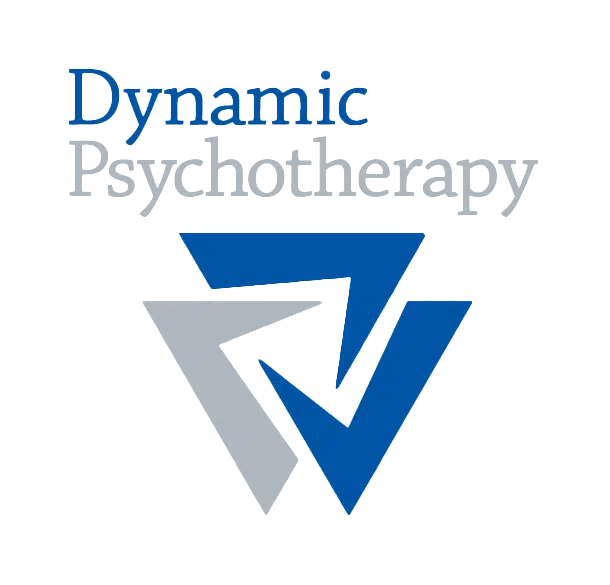Psychotherapists: what is a psychotherapist, what do they practice and who do they treat?

Introduction
The term “Psychotherapist” derives from two Greek words: “psyche” meaning soul or mind, and “therapeia” meaning healing or therapy. Thus, it literally translates to ‘healing the mind’ or ‘soul healing,’ reflecting the profession’s focus on addressing mental health issues and emotional distress through therapeutic means.
The term “Psychotherapist” was first coined by Sigmund Freud in 1892 when he published his book Jenseits des Lustprinzips (translated as Beyond the Pleasure Principle). Freud defined psychotherapy as “the treatment of neurotic symptoms with the aim of restoring the patient to a state of normal functioning”.
But what actually is a psychotherapist?
A psychotherapist, often interchanged with the term “therapist,” is a professional trained to support individuals through mental health and emotional challenges. Despite the title’s broad usage in Australia, it isn’t legally regulated, our psychotherapists here at Dynamic Psychotherapy undergo extensive training recognized by the Psychotherapy and Counselling Federation of Australia (PACFA). They specialise in understanding and improving relationship dynamics, equipped with the skills and knowledge to facilitate deep psychological healing and growth.
What do our Psychotherapists Treat?
Our Melbourne Psychotherapists offer specialised support for a wide range of mental health concerns. Each mental health concern requires a unique approach. During the initial session, our psychotherapists establish how the mental health concern is presenting, what the underlying cause could be, and how they can help.
While these mental health concerns often present at our practice, each person has a unique situation, requiring a unique approach from our psychotherapists, therefore length of treatment varies.
Some common concerns our psychotherapists treat include:
Anxiety: More than just temporary worry or fear, anxiety involves intense, excessive, and persistent worry and fear about everyday situations. It can involve panic attacks, physical symptoms like rapid heartbeat, and interfere with daily activities. Learn more about anxiety here.
Depression: Not just feeling sad, depression affects how you feel, think, and handle daily activities. It can lead to a variety of emotional and physical problems, significantly impacting one’s life. Learn more about depression here.
Stress: Beyond ordinary challenges, stress can be overwhelming, affecting emotional and physical health. It can stem from any event or thought, leading to frustration, anger, or nervousness. Learn more about stress here.
Trauma: Results from extremely stressful events that shatter your sense of security, leading to feelings of helplessness and vulnerability. Its impact can be profound and long-lasting. Learn more about trauma here.
PTSD: A disorder that develops in some people who have experienced a shocking, scary, or dangerous event. It can cause severe anxiety, flashbacks, and uncontrollable thoughts about the event. Learn more about PTSD here.
BPD: Characterized by rapid mood swings, early attachment issues, problems with self-regulation, and intense fear of abandonment. BPD affects the way you think and feel about yourself and others.
Specific Phobias: Extreme, irrational fear of specific situations or objects, such as heights, flying, or spiders. These fears can disrupt daily routines and cause significant distress.
Obsessive-Compulsive Disorder (OCD): Involves unwanted, recurrent thoughts (obsessions) and behaviours (compulsions) that the sufferer feels driven to perform in response to an obsession.
ADHD: Characterized by patterns of inattention or impulsivity that are not consistent with the individual’s developmental level. ADHD can affect focus, self-control, and other important functions. Learn more about ADHD here.
Anger Management: Involves techniques to control anger and handle triggering situations in a positive way. It’s crucial for preventing outbursts and maintaining relationships. Learn more about Anger Management here.
Eating Disorders: Include anorexia nervosa, bulimia nervosa, and binge-eating disorder, characterized by severe disturbances in eating behaviours and related thoughts and emotions.
The Therapeutic Approaches Our Psychotherapists Use
Our Melbourne Psychotherapists employ a variety of evidence-based therapeutic approaches.
Therapeutic approaches can be compared to the tools in a builders tool kit. Our therapists will use therapeutic techniques from multiple different approaches naturally throughout therapy depending on the situation.
Let our team know during the intake process if you wish to engage in a particular therapeutic approach.
Here are some of the common Therapeutic Approaches our Psychotherapists use:
Psychotherapy: A broad term for treating mental health problems by talking with a psychotherapist. It can help individuals understand feelings, thoughts, and behaviours, promoting healing and well-being. Learn more about Psychotherapy here.
Cognitive Behavioural Therapy (CBT): A structured, time-limited therapy that aims to identify and change negative thought patterns and behaviours, focusing on solutions to current problems.
Acceptance and Commitment Therapy (ACT): Employs mindfulness and behavioural strategies to help individuals live and behave in ways consistent with personal values while developing psychological flexibility.
Dialectal Behavioural Therapy (DBT): A cognitive-behavioural approach designed to help people manage negative emotions and harmful behaviours through mindfulness, emotional regulation, and distress tolerance skills. Learn more about DBT Therapy here.
EMDR Therapy: Eye Movement Desensitization and Reprocessing is used to alleviate the distress associated with traumatic memories, facilitating the brain’s natural healing process. Learn more about EMDR Therapy here.
Schema Therapy: Integrates elements of cognitive therapy, behaviour therapy, object relations, and gestalt therapy to change negative patterns or themes (schemas). Learn more about Schema Therapy here.
Psychodynamic Therapy: Focuses on increasing awareness of unconscious thoughts and behaviours, developing new insights into motivations, and resolving conflicts.
Attachment Therapy: Aims to strengthen or develop healthy, secure attachment relationships, addressing issues stemming from early attachment experiences.
Can I see a Psychotherapist Online?
In today’s digital age, the answer is a resounding yes. Online psychotherapy, also known as telehealth therapy or e-therapy, has become an increasingly popular and effective means of accessing mental health support.
Online psychotherapy allows you to connect with our Melbourne-based psychotherapists from the comfort and privacy of your own home.
It’s an ideal solution for those with busy schedules, mobility issues, or anyone who prefers the convenience of online sessions.
Utilising secure video conferencing technology, our psychotherapists provide the same level of specialized support and therapeutic approaches as they would in person.
Our online sessions are designed to ensure confidentiality and privacy, adhering to the same professional standards and ethical guidelines as traditional face-to-face therapy.
Choosing online psychotherapy means embracing a modern approach to mental health care that fits your lifestyle while ensuring you receive the expert guidance and support you need. Reach out to us to learn more about how online psychotherapy can work for you.
Using Third Party Payment Providers with Psychotherapists
Most Third Party Payment Providers require formal accreditation with either APHRA or MHSW for funding to be provided.
All of our psychologists and clinical psychologists are registered with APHRA, allowing us to process Medicare rebates for you with the correct paperwork.
Psychotherapist David Temme is also an accredited Mental Health Social Worker, allowing you to receive a rebate or reduced gap fee with the following providers.
Medicare rebates
With a GP Referral and mental health treatment plan, you are eligible for up to ten Medicare rebates per calendar year with David.
The Medicare rebate per session would be $82.30.
WorkSafe Funding
Once you have approval to see a mental health professional as part of your Workcover claim, you use Workcover funding to cover the majority of the appointment fee with David.
VOCAT Funding
David also works with Victims of Crime through VOCAT.
VOCAT covers the majority of the appointment fee, but there is normally a small out of pocket expense per session.
Bupa and other Private Health Insurance
David also offers on the spot private health claims for Bupa and Teachers Health insurance.
We suggest always checking with your private health insurance that mental health is covered by your insurance plan.
Frequently Asked Questions About Psychotherapists
Who do our Psychotherapists see?
Our Psychotherapists see Adults, and Adolescents aged sixteen and older.
How do I know if I need to see a psychotherapist?
If you’re experiencing persistent feelings of sadness, anxiety, depression or other emotional distress, it may be beneficial to consult with a psychotherapist.
How long does therapy take to work?
The duration of therapy varies depending on the individual’s unique situation and the complexity of the issues being addressed.
How often should I see a psychotherapist?
The frequency of sessions with a psychotherapist is tailored to individual needs and treatment goals. Initially, weekly sessions are common to build rapport and commence therapy effectively. Over time, as progress is made, the frequency may adjust to bi-weekly or monthly sessions. Your psychotherapist will work with you to determine the best schedule for your therapy journey, ensuring it aligns with your personal growth and healing process.
What should I do if I don’t feel a connection with my psychotherapist?
A strong therapeutic relationship is fundamental to the success of psychotherapy. If you feel you’re not connecting with your psychotherapist, it’s important to address this concern. You might consider discussing your feelings openly with your therapist; often, adjustments can be made to enhance the therapeutic alliance. If the issue persists, it’s perfectly acceptable to seek a different psychotherapist. Dynamic Psychotherapy is committed to ensuring a good match between clients and therapists, recognizing that the right fit is crucial for effective therapy.
Request an Appointment
Ready to book an appointment? Use our appointment request form by clicking the button below.
